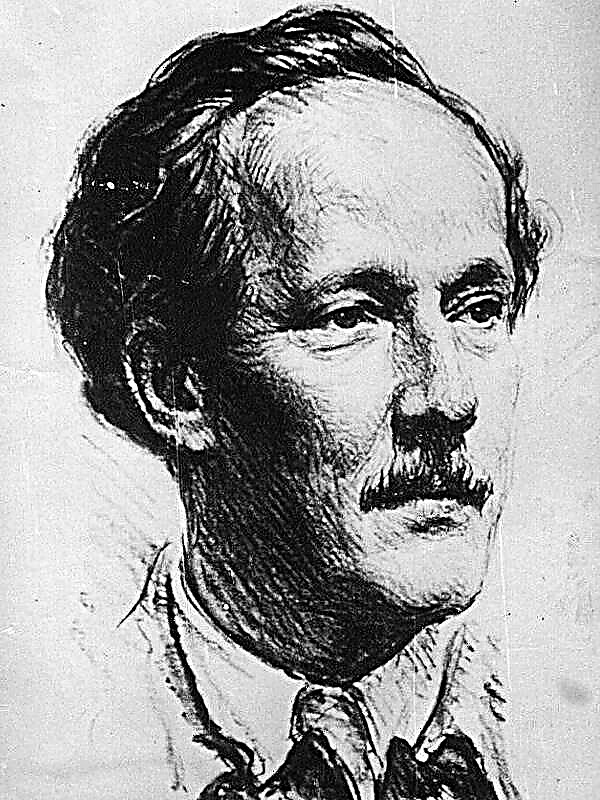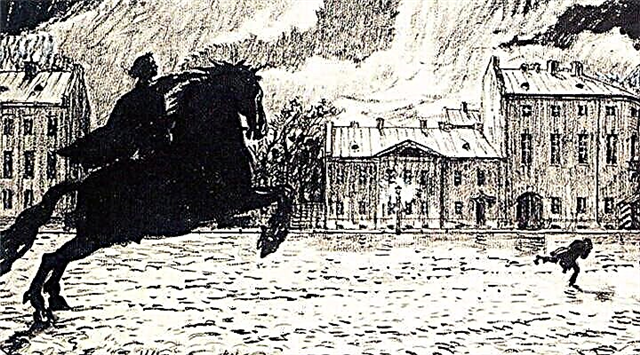A noble nobleman Liceo, accompanied by a servant Turin, comes from the province to Madrid: Liceo is waiting for a joyful event - a wedding. His future wife, Phinea, is the daughter of the famous and respected nobleman Octavio in the capital. Octavio also has another daughter, Nisa, who is famous in the area for her outstanding intelligence and education. Phinea is reputed to be, to her chagrin, Liceo recognizes by talking in a tavern, a fool whose ignorance and lack of any manners became a talk in Madrid. At the same time, Liceo becomes aware that Phinea is given a large dowry, inherited from the eccentric uncle, who was especially fond of this particular niece. For Nisa there is no dowry. Liseo is somewhat discouraged by this, but he cannot retreat and hurries to Madrid - to form his own opinion about the bride and, if the information is correct, to go back single.
Meanwhile, Octavio’s house was waiting for the groom. The head of the family laments to his friend Miseno how much trouble both daughters bring him, each in his own way: one depresses his father with excessive stupidity, the other with excessive scholarship, which Octavio, an old-school man, seems completely redundant in a woman. At the same time, the rich dowry of Phinea attracts grooms to her, while Nisa's hands, despite all her talents and beauty, are not sought. In fact, Laurencio, a poor nobleman who is keen on composing poetry, is passionately in love with Nisu. A passion for literature brought young people closer together: Nisa pays Laurencio with complete reciprocity. But if Nisa worships Heliodorus, Virgil, is read out by ancient Greek poetry, then for her sister Phineus even learning the alphabet is an impossible task. The literacy teacher, exhausted with her, loses patience and refuses to teach this girl anything, convinced that "the creator of the brain did not devote a grain to her." Young people come to Nisa to hear her opinion about the newly composed sonnet, and Phinea is revived only when her faithful servant Clara, who is quite matched by her intelligence and development, tells in detail how their cat roamed.
But although Laurencio has a sincere feeling for Nisa and considers her perfection, he, being a man of noble family, but poor, recognizes the need to be guided in his behavior by reason, and not feeling, and, leaving Nisa, begins to care for Phinea. Having made such a decision, he immediately goes on the offensive, but his refined syllable full of elegant comparisons not only does not conquer Phinea, it is incomprehensible to her, since this girl perceives all words only in the literal sense. The first attempts do not bring any result, which makes the young man regret the decision made: Phineus never thought about what love is, and, having heard this word for the first time, she even intends to find out its meaning from her father. Frightened, Laurencio barely manages to stop her. Pedro, the servant of Laurencio, who decided to knock on Clara, is no better off. But if Phinea is completely sincere in her extreme innocence, then the maid is on her mind: she sees perfectly what Laurencio’s true intentions are, why he suddenly became so courteous with her mistress.
Finally, the long-awaited Liceo arrives, who, having seen both sisters nearby, to Phinea’s displeasure, begins to lavish praise on the beauty of Nisa, while Phinea, when meeting her future husband, shows herself for the worse: her stupidity, misunderstanding and ignorance of the simplest things are so obvious that even her father feels awkward for her. Liceo, immediately realizing what misfortune could fall upon him in case of marriage, immediately abandons the intention to connect his fate with such a fool. Nimal contributes to this decision and the beauty of Nisa.
A month passes. Liceo lives in Octavio’s house as Phinea’s groom, but the talk of the wedding has subsided. Liceo spends time caring for Nisa and trying to achieve her love, but succeeds little in this: the arrogant girl is cold towards him and continues to love Laurencio. The same, on the contrary, turned out to be much more fortunate, gradually winning the love of Phinea. And this feeling completely transformed the recent fool: the mind that was napping in her and the innate subtlety of nature woke up. Sometimes Phinea is still rude, but you can’t call her a fool. Nisa is tormented by jealousy and rebukes Laurencio for infidelity, he rejects such accusations and assures Nisa of his love. Liseo becomes a witness to their explanation: after catching Nisa alone with Laurencio, he challenges his opponent to a duel. But, having come to the place of the duel, young people prefer to speak frankly and join forces, making something like a conspiracy - Liceo wants to get Nisu as his wife, and Laurencio - Phineus.
Frustrated by jealousy, Nisa angrily reproaches her sister that she is encroaching on her Laurencio, and demands to return the unfaithful lover, leaving Liceo for himself. However, Phinea has already managed to fall in love with Laurencio and suffers cruelly, seeing him next to her sister. She innocently talks about her torment of Laurencio, and he assures that only one means can help: it is necessary with the witnesses - and they are nearby - to declare consent to become the lawful wife of Laurencio. And in the presence of the friends of the young man - Duardo and Feniso - Phinea immediately joyfully follows this advice. Meanwhile, Liseo, after explaining to Laurencio, with even more zeal, tries to achieve the favor of Nisa and openly admits to her that he does not intend to marry Finay at all. But even after such a confession, Nisa continues to indignantly reject his claims. Phinea is changing day by day. She herself does not recognize herself and explains her transformation with love: she began to feel thinner, curiosity woke up in her. The change was noticed by everyone around us: in the city they just say that about the new Phinea. Tired of unsuccessfully seeking Nisa’s love, Liceo decides to return to Phinea, as Nisa openly admitted to him that she loves Laurencio, whom, in her opinion, no one can compare with either intelligence, education, or valor.
Liceo's decision immediately - through the servant - becomes known to Laurencio. This news discourages him: he managed to sincerely fall in love with Phinea, and the thought of the possibility of losing it makes the young man suffer. Phinea finds a way out: she is going to pretend to be the old fool Phinea, whom everyone scoffed at so that Liceo would refuse her again. She completely succeeds, and she easily misleads both Liceo, Nisa, and her father. But jealous doubts still do not leave Nisa, and she asks her father to forbid Laurencio to be in their house, which he gladly fulfills: he is annoyed by the young man’s passion for writing poetry. Against anticipation, Laurencio is not offended and expresses complete readiness to leave the Octavio house, but on condition that this house will leave with him and his named. He explains to the amazed Octavio that it has been two months since they’ve been engaged to Phinea, and asks his friends to confirm this. Enraged, Octavio refuses to admit this engagement, and then Phineus invents to hide Laurencio in the attic. Octavio, in order to avoid any more surprises, orders Phineas to escape from his eyes while at least one more man remains in the house. As a refuge, the girl chooses an attic, which Octavio immediately agrees to.
Then he speaks most decisively to Liceo, insisting on an early wedding with Phinea: there are already gossip in the city due to the fact that the young man lives in the house for the third month without being the husband of any of the owner’s daughters. Liceo refuses to marry Fineye and asks Octavio to give Nisa for him. But her hand has already been promised to Duardo, the son of Miseno, a friend of Octavio, and her angry father gives Liceo a deadline until the next day to decide whether he will marry Phinea or leave their house forever. Immediately there is a new contender for Phinea’s hand, and she again has to pretend to be a fool and, referring to her father’s will, go to the attic.
Meanwhile, Selya, Nisa’s servant, tracks down Klara in the kitchen, collecting a large amount of food in a basket, and, having crept behind her to the attic, sees through the gap Phinea, Klara and two men. Octavio rushes there to find out who shamed his house. Laurencio says in his defense that he was in the attic with his wife, and Phinea - that she was following her father’s order. Octavio is forced to admit the choice of "cunning fool", as he calls his daughter, against the desires of which he does not want to go, and give her hand to Laurencio. Using the right moment, Liceo once again asks Nisa's hands - and receives the consent of his father. Servants do not remain forgotten: Pedro, the servant of Laurencio, receives Clara as his wife, and Turin, the servant of Liceo, receives Selju, This, to everyone's pleasure, ends the play.












